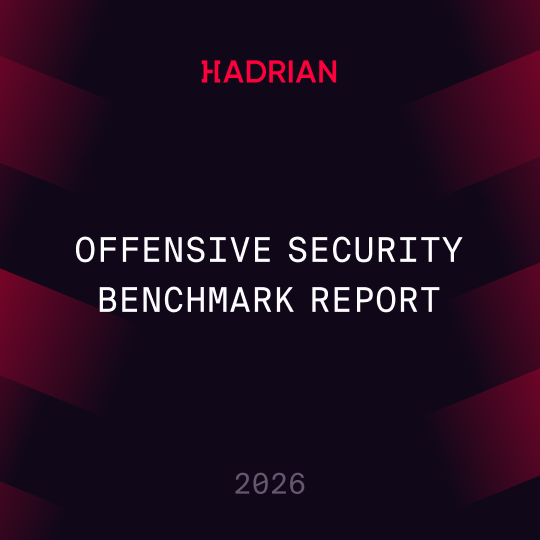
This blog post is part of a series; please see part one, The Development Methodologies: A Deeper Look, part two: DevSecOps and Waterfall: A Security Perspective in Software Development, part three: DevSecOps and Agile: A Security Perspective in Software Development, part four DevSecOps and Kanban: A Security Perspective in Software Development, part five DevSecOps and Lean: A Security Perspective in Software Development, and part six DevSecOps and Extreme Programming (XP): A Security Perspective in Software Development.
In software development, methodologies like DevSecOps and Adaptive Project Framework (APF) provide frameworks that prioritize efficiency and quality. Each has its unique approach and focus. Understanding these methodologies' differences and potential integrations can help organizations optimize their development processes and enhance security postures.
Adaptive Project Framework (APF): Flexibility Through Continuous Adaptation
APF is a project management methodology designed to be adaptive, flexible, and iterative. It is advantageous in environments where the scope of a project is uncertain or likely to change. APF focuses on defining project goals and then continuously refining them based on feedback and results from each iteration, making it highly flexible in responding to change. The methodology emphasizes stakeholder involvement, iterative planning, and frequent reassessment of the project’s direction.
Security in APF
While APF promotes adaptability and responsiveness to changing project needs, it does not inherently incorporate security considerations. Like many agile methodologies, teams must consciously include security in the iterative process. When applying the APF as a methodology, security can sometimes take a backseat to other priorities unless explicitly accounted for in each iteration. Without security champions within teams, it is often an after thought.
DevSecOps: Security Integration into DevOps
DevSecOps extends the DevOps philosophy by embedding security into every phase of the software development lifecycle. It advocates for "Security as Code" with a shift-left approach, integrating security early and continuously throughout development. This methodology aims to make security a shared responsibility among all team members involved in the development, operations, and delivery processes.
Security in DevSecOps
In DevSecOps, security is a fundamental, non-negotiable aspect. It involves automated tools for continuous security testing and compliance monitoring, ensuring security considerations keep pace with rapid development and deployment cycles.
Comparative Analysis
Core Focus and Integration
APF: Focuses on managing uncertain or evolving project scopes through continuous feedback and adaptation. It emphasizes flexibility and iterative refinement of project goals.
DevSecOps: Seamlessly integrates security into the continuous integration and deployment pipeline, ensuring that every release is secure by design.
Role of Security
APF: Security must be actively included in each iterative cycle, and security tasks must be prioritized and incorporated into project goals and adaptations.
DevSecOps: Treats security as an integral part of the daily workflow, automated and embedded in all software development and operations stages.
Team Dynamics and Collaboration
APF: Promotes collaboration between stakeholders and the project team through continuous feedback and adaptive/agile planning, focusing on reassessing and refining project goals.
DevSecOps: Encourages collaboration across development, operations, and security teams, breaking down traditional silos and fostering a culture where security is everyone's responsibility and built into code by design.
Tooling and Automation
Both methodologies employ tools to enhance efficiency; however, DevSecOps places a stronger emphasis on security-specific tools such as static and dynamic application security testing (SAST/DAST) tools and infrastructure-as-code (IaC) security tools that integrate directly into the CI/CD pipeline.
Pros and Cons
Adaptive Project Framework (APF)
Pros:
- Flexibility: Highly adaptive to changing project scopes and stakeholder needs.
- Continuous Improvement: Iterative refinement ensures project goals align with evolving needs.
- Stakeholder Involvement: Encourages ongoing feedback and collaboration with stakeholders.
Cons:
- Security as an Afterthought: Security must be consciously integrated into each cycle and may not always be prioritized.
- Lack of Built-In Security Focus: Security can easily be overlooked or delayed without proactive planning.
DevSecOps
Pros:
- Integrated Security: Security is embedded throughout the development lifecycle.
- Automation: The use of automated tools ensures consistent security practices.
- Shared Responsibility: Fosters a culture where security is everyone's job.
Cons:
- Complexity: Requires significant changes in workflow and tooling.
- Learning Curve: Teams must adapt to new security practices and tools.
- Resource Intensive: Initial setup and maintenance can be resource-demanding.
Conclusion
While APF offers a flexible and adaptive framework for managing projects with uncertain or evolving scopes, it inherently lacks the built-in security focus that DevSecOps offers. DevSecOps, on the other hand, is designed around integrating security at every step, making it ideal for projects where security is critical.
For teams using APF, integrating aspects of DevSecOps can enhance their approach to security, making it more continuous and integrated. This hybrid approach could leverage the strengths of both methodologies—APF’s adaptability and iterative refinement and DevSecOps’s rigorous security practices—to achieve a balanced, efficient, and secure development process. Building security champions within teams and breaking down silos can also increase the likelihood of ensuring security is the responsibility of everyone involved in development. Ultimately, the choice between APF and DevSecOps depends on the specific needs and priorities of the team and project. Still, using DevSecOps or DevSecOps aspects is recommended to help prepare your team to take a more security-minded approach.






